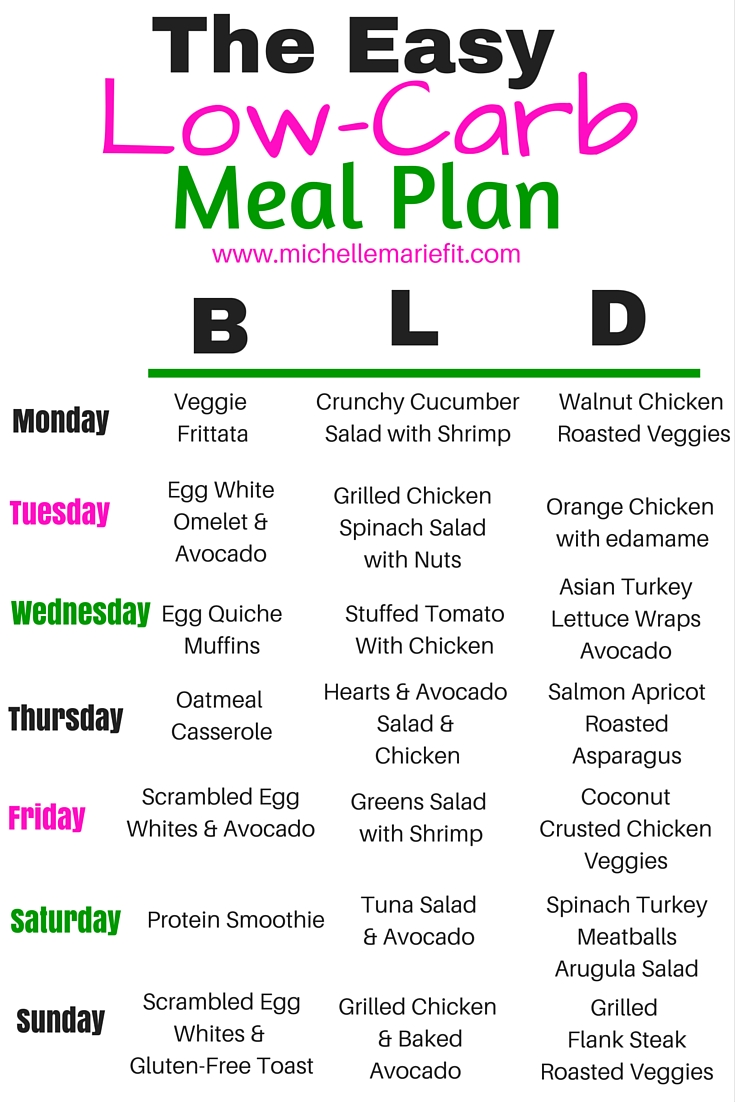Low Carb Diet Plan

How Does a Low Carb Diet Plan Work?
A low carb diet plan works by reducing the amount of carbohydrates you consume. Carbohydrates are the primary source of energy for your body, but when you consume too many carbohydrates, your body stores the excess as fat. By reducing your carbohydrate intake, you force your body to burn fat for energy instead of glucose. This process is called ketosis, and it is the basis of a low carb diet plan.
Benefits of a Low Carb Diet Plan
There are many benefits of a low carb diet plan, including:
- Weight loss
- Improved blood sugar levels
- Reduced risk of heart disease
- Increased energy levels
- Reduced appetite
- Improved mental clarity
How to Start a Low Carb Diet Plan
If you are interested in starting a low carb diet plan, here are some steps you can take:
- Reduce your carbohydrate intake by cutting out sugar and processed foods.
- Increase your intake of protein and healthy fats.
- Eat plenty of non-starchy vegetables.
- Drink plenty of water.
- Exercise regularly.
What to Eat on a Low Carb Diet Plan
When following a low carb diet plan, you should focus on eating foods that are high in protein and healthy fats. Some good options include:
- Meat (beef, pork, chicken, turkey, etc.)
- Fish and seafood (salmon, tuna, shrimp, etc.)
- Eggs
- Low carb vegetables (spinach, broccoli, cauliflower, etc.)
- Nuts and seeds
- Healthy fats (olive oil, coconut oil, avocado, etc.)
What to Avoid on a Low Carb Diet Plan
When following a low carb diet plan, you should avoid foods that are high in carbohydrates. Some foods to avoid include:
- Sugar (sweets, desserts, etc.)
- Bread and pasta
- Rice and grains
- High carb fruits (bananas, grapes, etc.)
- Processed foods
- Sugary drinks (soda, juice, etc.)
FAQs
1. Is a low carb diet plan safe?
Yes, a low carb diet plan is safe for most people. However, if you have a medical condition, it is important to talk to your doctor before starting a new diet plan.
2. How long does it take to see results on a low carb diet plan?
The amount of time it takes to see results on a low carb diet plan depends on a variety of factors, including your starting weight, your activity level, and your adherence to the diet plan. Some people may see results in just a few weeks, while others may take several months to see significant changes.
3. Can I eat fruit on a low carb diet plan?
Yes, you can eat fruit on a low carb diet plan, but you should choose low carb fruits like berries and limit your intake to one or two servings per day.
4. Do I need to count calories on a low carb diet plan?
No, you do not need to count calories on a low carb diet plan. However, it is important to be mindful of portion sizes and to focus on eating whole, nutrient-dense foods.
Pros and Cons of a Low Carb Diet Plan
Pros:
- Effective for weight loss
- Improves blood sugar levels
- Reduces appetite
- Increases energy levels
Cons:
- May be difficult to follow long-term
- May result in nutrient deficiencies if not planned properly
- May require more planning and preparation
Conclusion
A low carb diet plan can be an effective way to lose weight and improve your overall health. However, it is important to talk to your doctor before starting a new diet plan, especially if you have a medical condition. By reducing your carbohydrate intake and focusing on whole, nutrient-dense foods, you can improve your blood sugar levels, increase your energy levels, and feel better overall.
